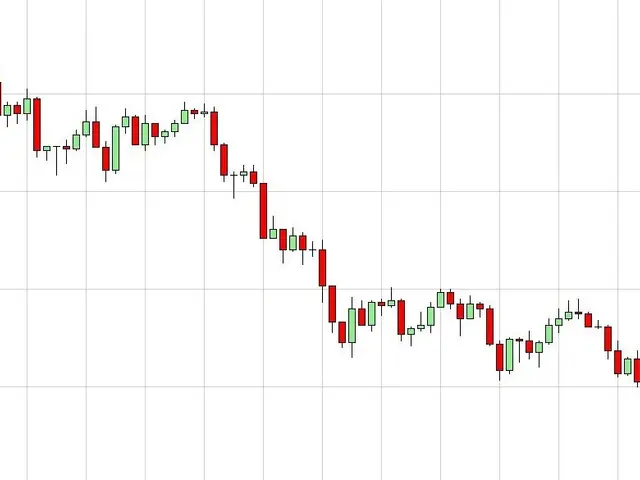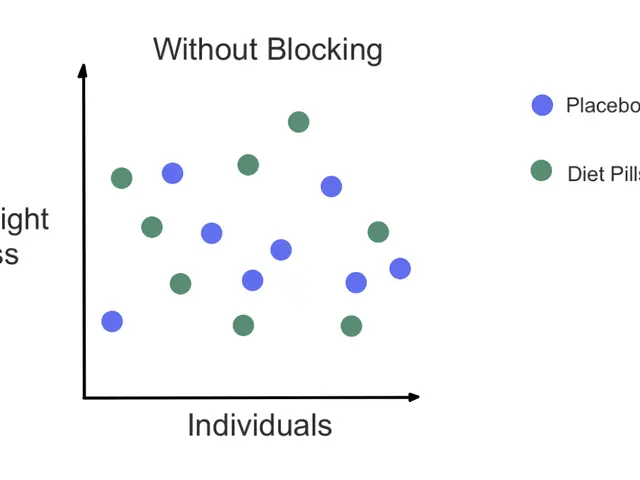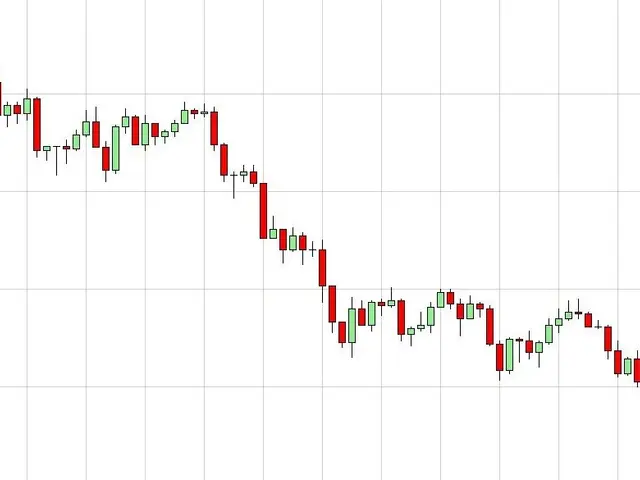Nestlé's Job Cuts: A Response to Economic Pressure
Demonstration against Decreased Nestlé Shares - Dissatisfaction escalates as Nestlé reduces product prices
Protestors have taken to the streets, rallying against Nestlé's latest employment cuts in Germany. The demonstration, held outside Nestlé Germany headquarters in Frankfurt, is in response to the anticipated loss of approximately 230 jobs at the Neuss near Düsseldorf and Conow in Mecklenburg-Vorpommern locations.
The NGG union sees this decision as a continuation of a broader trend amongst the world's largest food manufacturers to optimize operations and boost profits.
A Shrinking Workforce
In light of the potential layoffs, the communication campaign for employees with the slogan #OnTheWayToBetter feels like a bad joke, according to Andreas Zorn, chairman of the works council of Nestlé Germany. He asserts, "For years, Nestlé has been slashing jobs in Germany and moving production to countries with lower wages, such as Eastern Europe." From a workforce of 12,400 employees in Germany in 2014, the number has dwindled to a mere 6,500 presently, with insufficient investments in factories, states Zorn. "If this continues, we will have no Nestlé factories left in Germany within the next 20 years."
Not All Jobs Lost
In statements made by the company, the Neuss site will be closed by mid-2026, while the Conow (Mecklenburg-Vorpommern) plant will be sold. However, the 80 employees from the Conow plant are expected to be taken over by the buyer. The jobs pertaining to the production of mustard and mayonnaise tubes from Neuss will be transferred to Lüdinghausen near Münster and offered to the affected employees.
Nestlé Reaffirms Presence in Germany
A spokesperson for Nestlé assures the public that the company will continue to produce in Germany, citing increasing price sensitivity from consumers and escalating costs as the reasons for declining volumes and overcapacities in the culinary products sector over the past few years.
The demonstration was attended by approximately 300 protesters who criticized the company for relocating jobs, fostering profits, and voiced slogans like "People before Profit" and "Mismanagement destroys jobs."
Record Profits for Nestlé
Last year, Nestlé's global sales dropped by 1.8 percent to 91.4 billion Swiss francs. Despite this drop, profit still amounted to 10.9 billion francs. The new CEO Laurent Freixe has already announced cost-cutting measures.
In the social plan negotiations for Neuss, significant progress has been made, according to the Nestlé spokesperson. Offers for partial retirement and a transfer company, which allows employees to continue their education and qualifications, are part of the plan.
It is essential to understand that despite the current job losses, Nestlé has reported broader growth across markets and categories in its three-month sales report for 2025, indicating that the company is focusing on strategic restructuring rather than a long-term trend of job cuts.
Additional Insights
- Economic Context: The current job cuts in the food industry, including Nestlé, are part of larger economic trends and company strategies, rather than a unique long-term trend exclusive to Nestlé in Germany. Europe, including Germany, is experiencing economic challenges, with companies facing weak demand and overcapacity.
- Industry Wide Cuts: Companies like Porsche, Renault, and Volkswagen are also reducing staff, suggesting a broader industry response to economic conditions.
- Overcapacity: Nestle cited overcapacity as a reason for divesting the two factories in Germany. This decision reflects efforts to streamline operations and reduce costs.
- Global Growth: Despite local job cuts, Nestle reported broad-based growth across markets and categories in its three-month sales report for 2025, indicating that the company is focusing on strategic restructuring rather than a long-term trend of job cuts.
- Union Dynamics: Nestle has faced union negotiations, but there have been delays in bargaining, indicating some complexity in the labor environment. However, this does not necessarily indicate a long-term trend in job cuts but rather a response to immediate economic conditions.
- The food industry, including Nestlé, is experiencing job cuts as part of a broader economic trend, with companies like Porsche, Renault, and Volkswagen also reducing their workforce.
- Nestlé's decision to optimize operations and boost profits, leading to job losses in Germany, is seen by critics as a continuation of such industry-wide responses to economic challenges.
- Despite the closure of two factories and job losses in Germany, Nestlé has reported broader growth across markets and categories, indicating a focus on strategic restructuring rather than a long-term trend of job cuts globally.





